Nigeria has renewed its call for far-reaching reforms at the United Nations, including a permanent African seat on the Security Council, urgent sovereign debt relief and a global push to close the digital divide.
Delivering President Bola Ahmed Tinubu’s statement at the 80th session of the United Nations General Assembly in New York on Tuesday, Vice-President Kashim Shettima said the UN must “reflect the world as it is, not as it was,” warning that multilateralism risks losing credibility without real change.
The address, themed “Better Together: 80 Years and More for Peace, Development and Human Rights,” came as world leaders gathered to mark the UN’s 80th anniversary.
Shettima said Nigeria, now a nation of more than 236 million people, had earned its place at the centre of global decision-making after decades of peacekeeping and regional security leadership. “Our case for a permanent seat at the Security Council is a demand for fairness, for representation, and for reform,” he said.
The Vice-President also urged a binding international mechanism to manage sovereign debt, likening it to “an International Court of Justice for money,” to help emerging economies escape the cycle of debt and primary commodity dependence.
On resource governance, Shettima stressed that mineral-rich countries must benefit from their natural wealth through investment, local processing and job creation, saying Africa’s vast critical minerals could drive the technologies of the future and reduce global tensions.
He also called for a “dedicated initiative” to close the global digital divide, insisting that artificial intelligence must stand for “Africa Included.” Without equal access to technology and knowledge, he warned, emerging economies risk falling further behind.
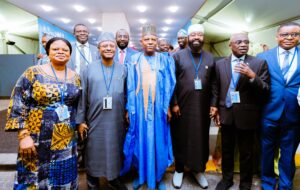
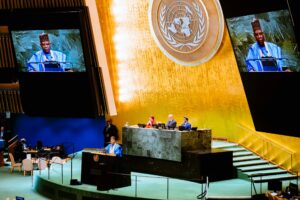
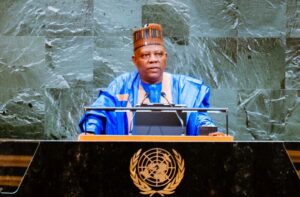
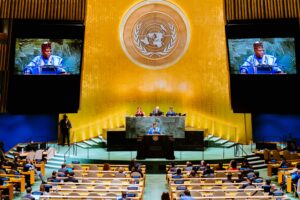
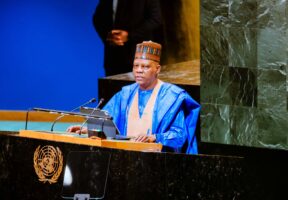
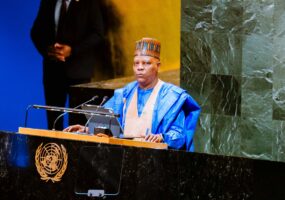
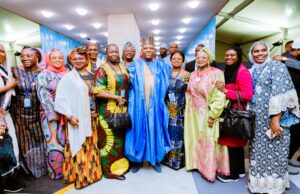
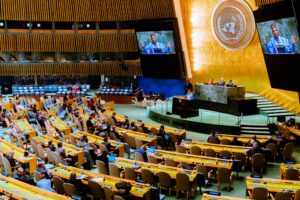
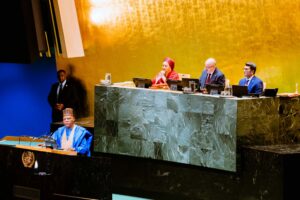
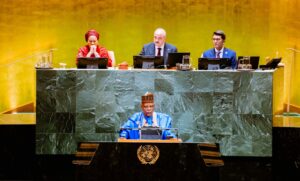
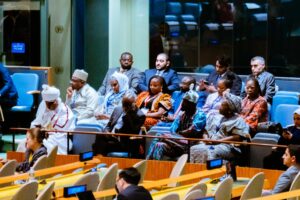
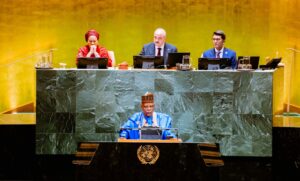
Reaffirming Nigeria’s commitment to multilateralism, peace and human rights, Shettima condemned violence against civilians worldwide and reiterated support for a two-state solution in the Middle East. “None of us is safe until all of us are safe,” he told delegates.
The speech highlighted Nigeria’s ongoing economic reforms, regional peacekeeping efforts and collaboration with the UN on climate change and democratic institution-building.





